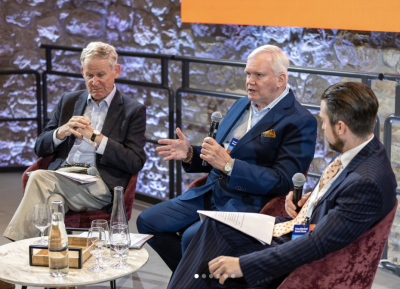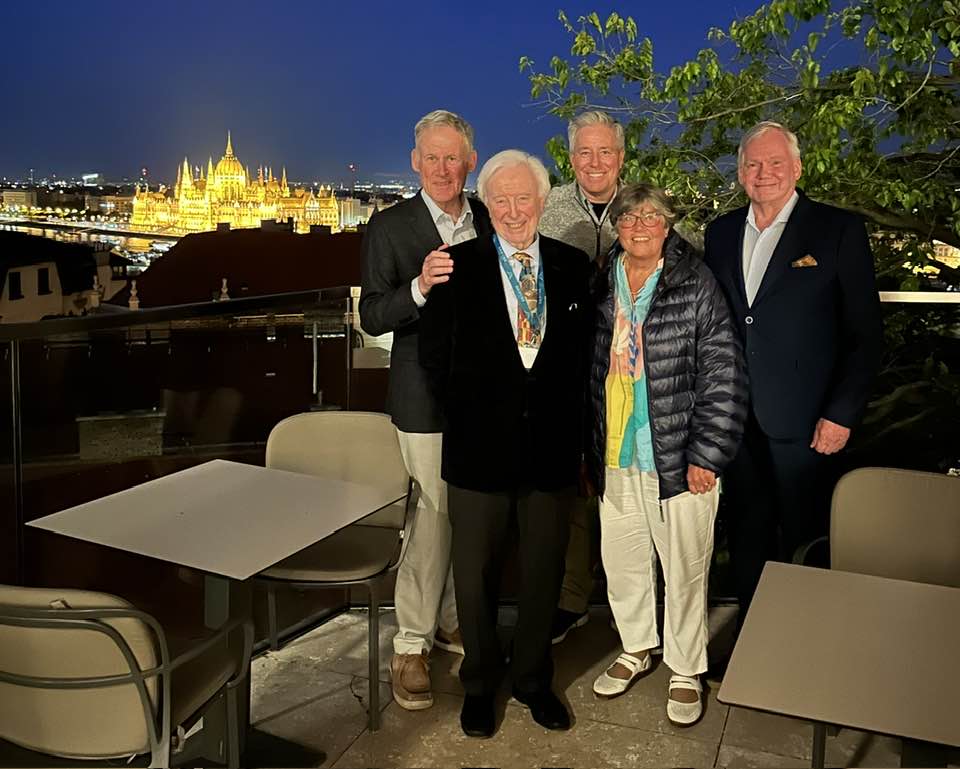 RNH Academic Director, Professor Emeritus Hannes H. Gissurarson, was one of the speakers at the Budapest meeting on 13 May 2025 of the Free Market Road Show, organised by the Austrian Economics Center in Vienna, in cooperation with the Danube Institute in Budapest, and the Hungarian-American Chamber of Commerce, New York. Gissurarson participated with Dr. Eamonn Butler of the Adam Smith Institute in a panel about trade and tariffs, moderated by Philip Pilkington. Dr. Barbara Kolm of the Austrian Economics Center and Dr. Daniel Mitchell of the Freedom and Prosperity Institute participated in another panel on the dollar and gold. Her Excellency María Lorena Capra, Ambassador of Argentina to Hungary, also gave a talk at the meeting on the liberal reforms of Argentinian President Javier Milei.
RNH Academic Director, Professor Emeritus Hannes H. Gissurarson, was one of the speakers at the Budapest meeting on 13 May 2025 of the Free Market Road Show, organised by the Austrian Economics Center in Vienna, in cooperation with the Danube Institute in Budapest, and the Hungarian-American Chamber of Commerce, New York. Gissurarson participated with Dr. Eamonn Butler of the Adam Smith Institute in a panel about trade and tariffs, moderated by Philip Pilkington. Dr. Barbara Kolm of the Austrian Economics Center and Dr. Daniel Mitchell of the Freedom and Prosperity Institute participated in another panel on the dollar and gold. Her Excellency María Lorena Capra, Ambassador of Argentina to Hungary, also gave a talk at the meeting on the liberal reforms of Argentinian President Javier Milei.
In the beginning of his remarks Gissurarson recalled that in the 1970s at the end of his anti-communist speeches—when communism was still an issue—he used to recite a stanza by Hungarian poet Sàndor Petöfi:
Talpra magyar, hí a haza!
Itt az idő, most vagy soha!
Rabok legyünk, vagy szabadok?
Ez a kérdés, válasszatok!
In English this has been translated:
On your feet now, Hungary calls you!
Now is the moment, nothing stalls you,
Shall we be slaves or men set free
That is the question, answer me!
In the nineteenth century, the Icelanders followed with sympathy the Hungarian struggle for independence, as they were themselves demanding home rule from Denmark.
Gissurarson said that the two main arguments for international free trade were prosperity and peace. God has created individuals and countries with different resources and capabilities and thus He has directed them towards trading with one another. If you have what I lack, and I have what you lack, then we both benefit by trade, and the division of labour. The second argument for international free trade is that if you see a potential customer in me, then your propensity to shoot at me diminishes. Gissurarson welcomed Elon Musk’s proposal that North America and Europe should become one huge free-trade area, without any tariffs, but he added that China was a problem for free traders because of her unfair trade practices, the annexation of Tibet, threats against Taiwan and aggressive behaviour in the South China Sea. Communist China could not be regarded as yet another ordinary business partner. Nor could the other three Axis powers, Iran, North Korea, and Russia.
The Head of the Danube Institute, John O’Sullivan, and his wife Melissa gave a dinner for the speakers after the conference. From left: Eamonn Butler, John O’Sullivan, Daniel Mitchell, Christine Blundell, and Hannes H. Gissurarson.



